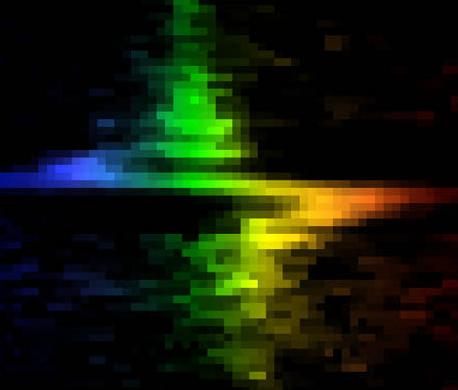 WOULD ALBERT EINSTEIN AGREE WITH FIME THEORY ?
WOULD ALBERT EINSTEIN AGREE WITH FIME THEORY ?
The Development of the Concept of the Multidimensional Universe
Einstein introduced the concept of Time
as being the fourth dimension and the concept
of the curved Time-Space.
This
cartoon demonstrates that last concept which is difficult to imagine,
but perhaps Censored Physics may provide a clarification.
Hyperspace
is a term which describes the higher dimensional space.
The General Relativity - Inspiration for other dimensions Hyperspace Theory (also called Superstring
or Supergravity Theory) begins with Einstein's
General
Relativity. In 1919, Theodor Kaluza, building upon relativity, made
an astounding discovery: light and gravity can be unified and expressed
with identical mathematics. This was the beginning of the unification of
all physical laws, which is the ultimate goal of physics. There was only
one catch. He needed an extra dimension or dimensions. How can Einstein's equation about the relationship
between mass and energy E=mc²
Historical Fotsteps
Flatland Flatland,
A romance of many dimensions (Ext.
Link) was written by Edwin
A. Abbott 1884. It is a simple philosophical approach to the concept
of the higher dimensions.
Kaluza-Klein Theory Kaluza first developed his concept in 1919 in an attempt to unify Electromagnetism
and General Relativity. His basic idea was
to postulate an extra, fifth, dimension, but with all fields being independent
of this extra dimension. The starting point would then be a 5 dimensional
pure gravity in which because of the independence of the fifth
coordinate, the fields can be expressed in 4 dimensional fields.
Superstring Theory One of the hyperspace theories, the Superstring
Theory, integrates all the known forces in nature, and assigns ten
dimensions to the universe. Explanation of the
Hyperspace in a simplified form (Courtesy
of Brown University). A more detailed explanation can be found here.
What about Fime Theory? By comparing the above with what Fime Theory
states, it becomes obvious that there is a very close relationship between
it and the other related concepts in theoretical physics. And though it
only presents five dimensions, not ten, it explains how the fifth one,
Fime,
operates
in detail. It should also be stressed that the Superstring
Theory presents the rest six dimensions as non-specific dimensions,
while Fime Theory states clearly that the
fifth dimension, Fime, is closely related
to time, it is a temporal
or
chronological
dimension, and thus brings a
broader explanation to the concept of the multitemporal
or
multichronological physics and
universe.
|







